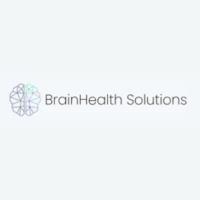Understanding TMS Therapy: A Drug-Free Solution for Treating Depression
Depression affects millions of people worldwide, often interfering with daily life, relationships, and overall well-being. While depression medication has been a cornerstone of treatment for many, it’s not always effective or suitable for everyone. For those seeking alternative or additional treatments, Transcranial Magnetic Stimulation (TMS) therapy offers a promising, drug-free option.
What is TMS Therapy?
TMS therapy is a non-invasive procedure that uses magnetic fields to stimulate nerve cells in the brain. It is primarily used to treat major depressive disorder (MDD) in individuals who haven’t found relief through traditional methods like medications or psychotherapy.
The therapy involves placing a magnetic coil against the scalp near the prefrontal cortex, an area of the brain associated with mood regulation. Pulses from the coil stimulate neural activity, helping to improve symptoms of depression. Unlike medications, which affect the entire body, TMS therapy targets specific areas of the brain, reducing the likelihood of systemic side effects.
How Does TMS Compare to Depression Medication?
Depression medication, such as selective serotonin reuptake inhibitors (SSRIs), works by altering brain chemistry to improve mood. While effective for many, medications can come with side effects like weight gain, sleep disturbances, or gastrointestinal issues. Some individuals may also develop resistance to medications over time or find them ineffective altogether.
TMS therapy offers an alternative for those unable to tolerate medication or who prefer a non-drug approach. It provides relief without introducing chemicals into the body and has a different mechanism of action. Studies have shown TMS to be effective in reducing depressive symptoms, even in treatment-resistant cases.
The Benefits of TMS Therapy
- Non-Invasive and Drug-Free
TMS therapy doesn’t require surgery, anaesthesia, or medication, making it a safe option for many individuals. - Minimal Side Effects
Common side effects are usually mild and include scalp discomfort or headaches during the procedure. Unlike depression medications, TMS does not typically cause weight gain or sexual dysfunction. - Targeted Treatment
By focusing directly on the brain regions involved in mood regulation, TMS therapy can provide precise and effective relief. - Improvement in Treatment-Resistant Depression
For individuals who have not responded to at least one course of depression medication, TMS offers new hope. Many patients experience significant symptom improvement or even remission after completing a series of sessions.
What to Expect During TMS Therapy
A typical TMS therapy session lasts about 20–40 minutes. During the procedure, you’ll sit in a comfortable chair while a technician places the magnetic coil on your head. The machine delivers magnetic pulses that you might feel as tapping sensations on your scalp.
Treatment is usually administered five days a week for four to six weeks. While results may vary, some patients notice improvement in their symptoms after just a few sessions, with benefits continuing to grow throughout the course of treatment.
Who Can Benefit from TMS Therapy?
TMS therapy is FDA-approved for individuals with treatment-resistant depression. It may also be suitable for those who experience significant side effects from depression medications or who prefer a non-drug alternative. However, it’s not recommended for individuals with metal implants in the head, epilepsy, or certain medical conditions.
If you’re considering TMS therapy, it’s important to discuss your medical history and treatment goals with a psychiatrist. At BrainHealth Solutions, we specialise in providing personalised care, helping patients explore all their options, including TMS and depression medication, to find what works best for them.
Is TMS Right for You?
Deciding on a treatment for depression can feel overwhelming, especially if previous methods haven’t been successful. TMS therapy offers a safe, effective, and drug-free option for many individuals. It’s an innovative approach to mental health care that has helped countless people regain control of their lives.
Whether you’re new to treatment or exploring alternatives to depression medication, TMS therapy might be the solution you’ve been looking for. To learn more about TMS or schedule a consultation, contact a trusted mental health professional or visit BrainHealth Solutions.
By understanding all your options, you can take the next step toward lasting relief and improved well-being.








